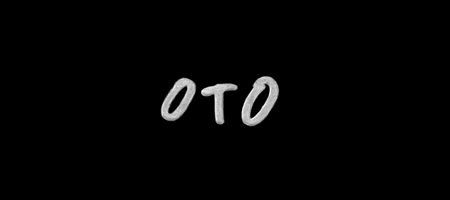Since the dawn of man, progress has been the main driver for evolution. Contemporary globalisation, bearing daily changes at an unprecedented speed, favours a linear understanding of time. The world of the present is being pushed and pulled towards the future, leaving the constant growing past behind. In a collective frenzy of euphoria we are all together building a better and more convenient world. Or are we?
For almost two decades I have been studying humanities ecological impact on Earth, visualised by the current geological layer we will leave behind for future generations. Most of my works start from an investigation into the materiality of objects that surround us, ranging from the origin of the different materials and the contexts in which they are extracted, transported and transformed, to the remains after they are no longer in use. The Anthropocene, a new and contested geologic chronological term to define the epoch that began when human activities started having a significant global impact on the Earth’s ecosystems, is my main area of interest. The discourse around this new term and its entanglements within a global and postcolonial context is at the core of my artistic research.
In my art practice I try to stop the clock and take time to unravel the process and consequence of time. I deliberately look for and relate to different fields of study, social contexts and anthropological perspectives as an arena in which I produce, exhibit and talk about my work, ranging from marine biology to cosmology, and from social anthropology to futurology.
‘Collaborating has never been as easy and obvious as today, and equal to the emerging moment of human existence, it is of essential importance for our survival in the future. The development of language was a prerequisite for this, and physiologically we have taken this to an extreme, deforming our larynx in such a way that we nearly suffocated ourselves in order to produce a greater variety of sounds. Collaboration, and specifically the development of language, is the foundation of our modern society and the roots of our existence.’ Maarten Vanden Eynde (Working Together, 2006)
MAARTEN VANDEN EYNDE (1977, BE / based in Drogenbos, BE)
Artist and co-founder of Enough Room for Space
Maarten Vanden Eynde graduated in 2000 from the free media department at the Gerrit Rietveld Academy in Amsterdam (NL), participated in 2006 in the experimental MSA^ Mountain School of Arts in Los Angeles (US) and finished a post graduate course in 2009 at HISK Higher Institute for Fine Arts in Ghent (BE) where he is a regular guest tutor. Since 2020 he is a PhD candidate at the UiB / University of Bergen in Norway. In 2017 he was nominated for the first Belgian Art Prize and won the Public Prize. His practice is embedded in long term research projects that focus on numerous subjects of social and political relevance such as post-industrialism, capitalism and ecology. His work is situated exactly on the borderline between the past and the future; sometimes looking forward to the future of yesterday, sometimes looking back to the history of tomorrow. Currently he is investigating the influence of transatlantic trade of pivotal materials like rubber, oil, ivory, copper, cotton and uranium, on evolution and progress, the creation of nations and other global power structures. The initiated project Triangular Trade traces back the origin of the different materials and follows their (r)evolutionary path as they are processed and transformed into 'world changing wonders’
Upcoming : Digging Up The Future, Mu.ZEE, Ostend, BE (2021). Recent exhibitions include: Beaufort 21 Triennial, BE (2021); The Von der Heydt-Museum, Wuppertal, DE (2020); TABAKALERA, Donostia / San Sebastián, ES (2020); Z33 House for Contemporary Art, Design & Architecture, Hasselt, BE (2020); Museum Morsbroich, Leverkusen, DE (2020); Tallinn Photomonth - Contemporary Art Biennial, EE (2019); Mu.ZEE, Ostend, BE (2019); 6th Lubumbashi Biennale, DRC (2019); Latvian National Museum of Art, Rīga, LV (2019), Contour Biennale 9, Mechelen, BE (2019); Cid Grand Hornu, Hornu, BE (2019); Kunsthalle Bremen, Bremen, DE (2019); 1st RIBOCA/Riga International Biennial of Contemporary Art, Riga, LV (2018), ARTEFACT2018, STUK Leuven, BE (2018); Belgian Art Prize 2017, Bozar, Brussels, BE (2017); 2050. A Brief History of the Future at National Museum of Fine Arts, Taichung, TW (2018), Palazzo Reale, Milan, IT (2016) and The Royal Museums of Fine Art, Brussels, BE (2015); Performatik Biennale 2017, Brussels, BE (2017); 4th Lubumbashi Biennale, DRC (2015); Beyond Earth Art at Johnson Museum of Art, Ithaca, US (2014); Gemeentemuseum Den Haag, NL (2013); The Deep of the Modern, Manifesta9, Genk, BE (2012); The Museum of Forgotten History, M HKA, Antwerp, BE (2012) and Dublin Contemporary in Dublin, IR (2011).
